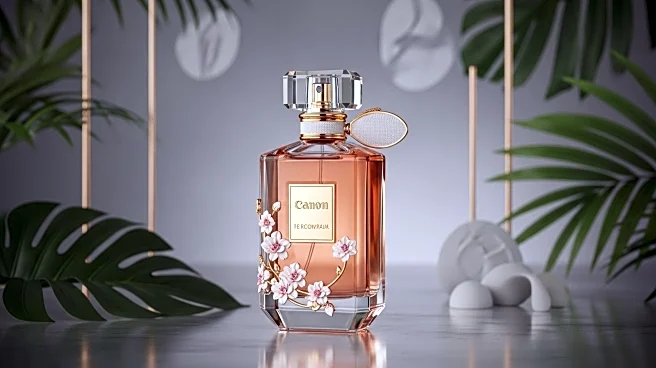What's Happening?
LVMH Moët Hennessy Louis Vuitton announced a 4 percent decline in overall revenues for the third quarter, yet reported a 1 percent increase in organic sales, surpassing market expectations. The fashion and leather goods division showed resilience, with a 2 percent decline, better than the anticipated 4 percent drop. The company attributed this improvement to strong local customer engagement. New creative director Jonathan Anderson's collections for Dior have been well received, contributing to the positive outlook. Additionally, LVMH's watches and jewelry division saw a 2 percent rise in organic sales, while perfumes and cosmetics met forecasts with a 2 percent increase. The wines and spirits division exceeded expectations with a 1 percent rise, and selective retailing grew by 7 percent. Despite challenges in Europe due to currency fluctuations affecting tourist spending, organic sales increased by 3 percent in the U.S. and 2 percent in Asia-Pacific, excluding Japan.
Why It's Important?
The positive performance of LVMH's fashion division and other sectors indicates a potential recovery in the luxury market, which has been under pressure due to global economic uncertainties and trade tariffs. The improvement in Asian markets, particularly in China, is crucial as it represents a significant portion of luxury sales. The resilience shown by LVMH could boost investor confidence, as reflected in the recent rise in its stock price. Analysts have raised their outlook for LVMH, suggesting that the company is well-positioned to capitalize on reversing industry headwinds. This development is significant for stakeholders in the luxury sector, including investors, retailers, and consumers, as it may signal a broader market recovery.
What's Next?
LVMH's positive third-quarter results may influence other luxury brands, such as Kering and Hermès International, which are set to report their figures soon. The company's strategic focus on local customer engagement and new creative directions could continue to drive sales growth. Analysts predict that LVMH will remain a key player in the luxury market, potentially attracting more investors. The upcoming collections and flagship store openings in major cities like New York and Beverly Hills could further enhance brand visibility and sales.
Beyond the Headlines
The appointment of Maria Grazia Chiuri as Fendi's chief creative officer and the debut collections from Jonathan Anderson and Loewe's creative duo highlight the importance of innovative design in maintaining brand relevance. These creative shifts may influence fashion trends and consumer preferences, impacting the broader luxury market. Additionally, LVMH's strategic expansion in Asia and the U.S. underscores the significance of these regions in the global luxury landscape.








